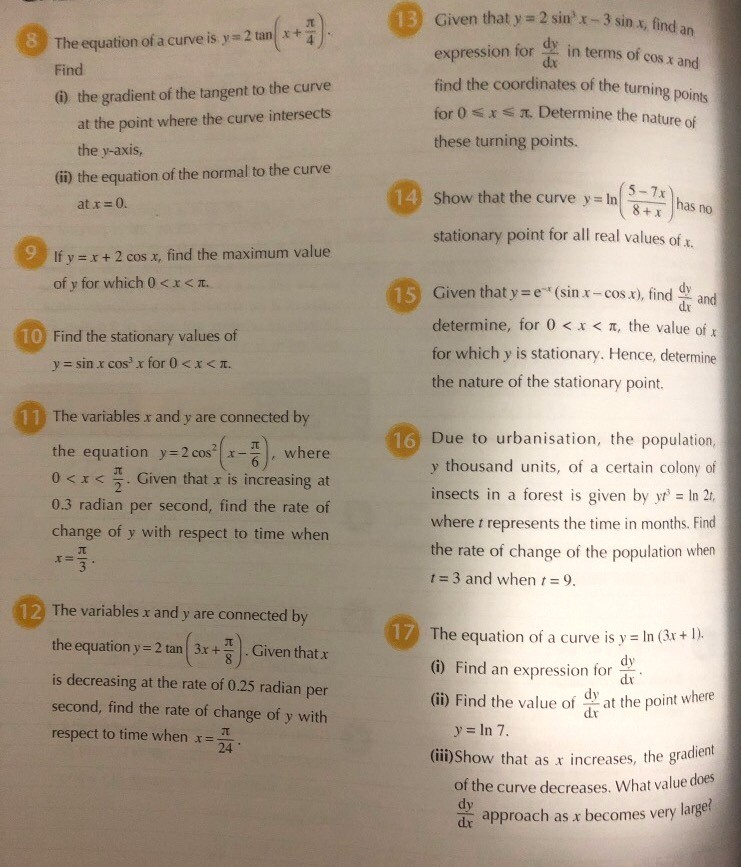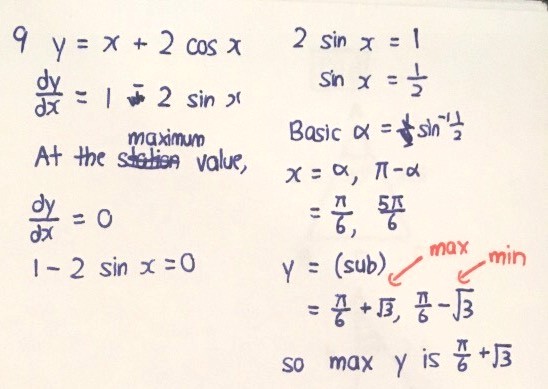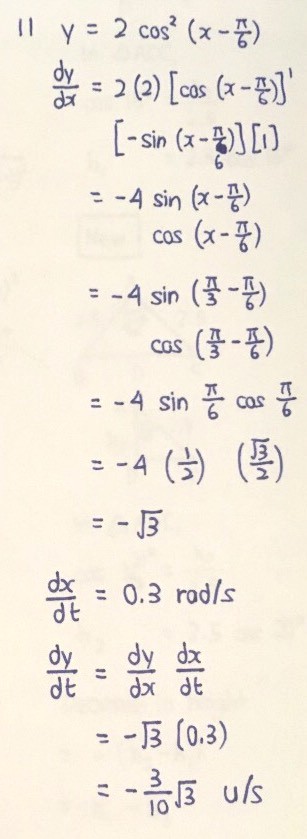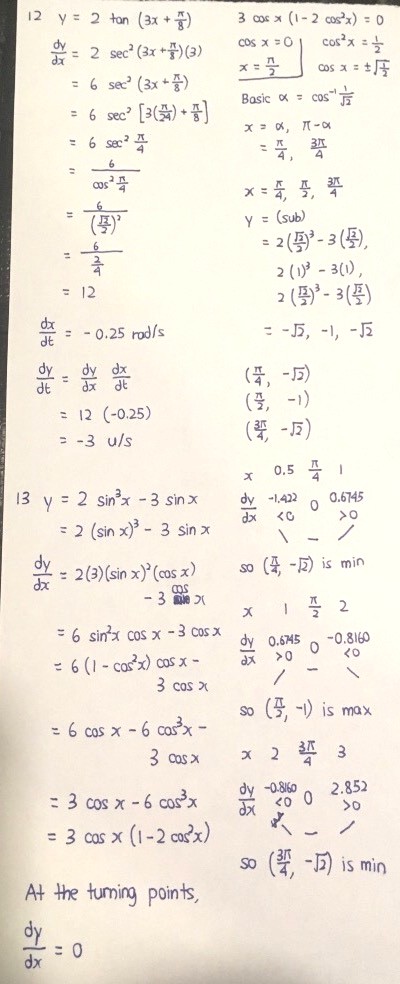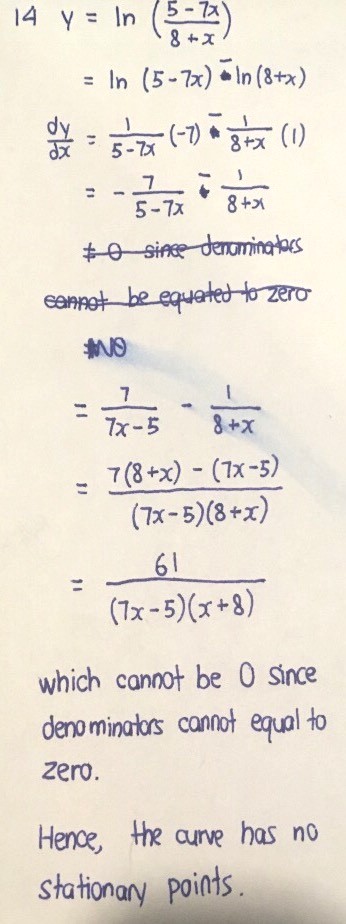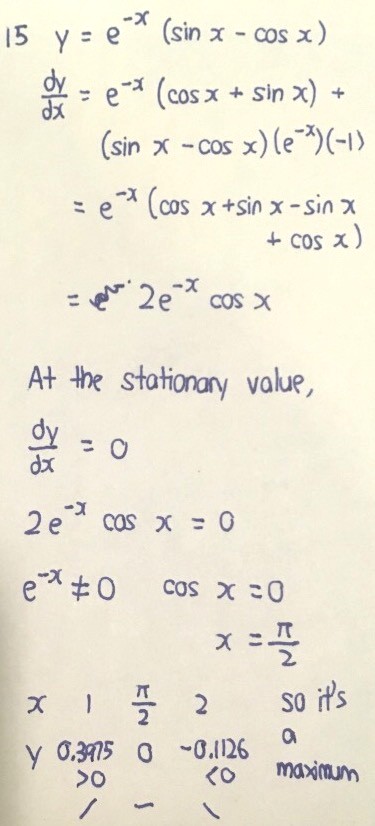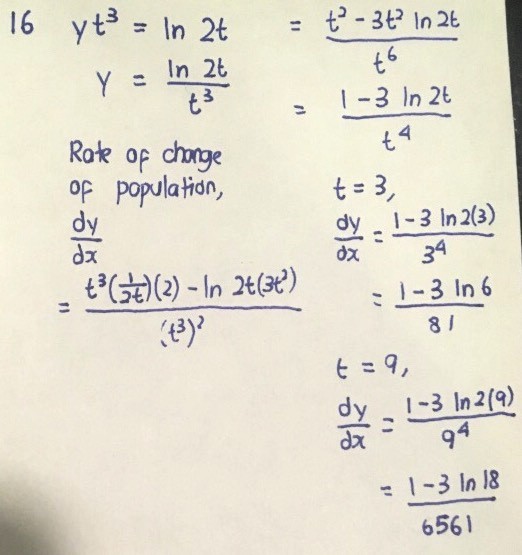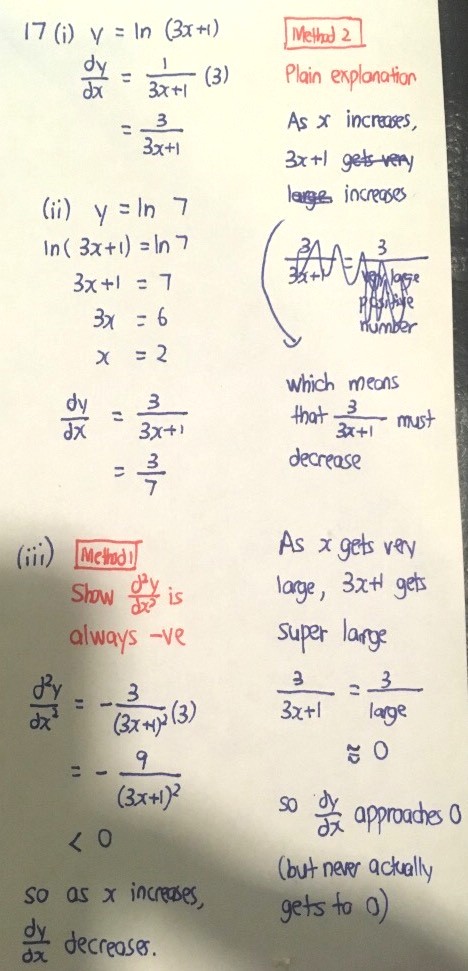Ask Singapore Homework?
Upload a photo of a Singapore homework and someone will email you the solution for free.

See 9 Answers
done
{{ upvoteCount }} Upvotes
clear
{{ downvoteCount * -1 }} Downvotes
Q9
I cut short the workings heavily for this question. Let me know if you need me to rewrite these with more explanations.
Here we have two values for x for which dy/dx = 0. Only one of them is a maximum. The other will be a minimum, just like regular sine and cosine graphs.
Note that we CANNOT say that max value of 2 cos x is 2 and the maximum value of x is pi and therefore maximum value of x + 2 cos x is pi + 2. It does not work this way, as cos x achieves its maximum value when x = 0, whereas x itself is a maximum at pi.
I cut short the workings heavily for this question. Let me know if you need me to rewrite these with more explanations.
Here we have two values for x for which dy/dx = 0. Only one of them is a maximum. The other will be a minimum, just like regular sine and cosine graphs.
Note that we CANNOT say that max value of 2 cos x is 2 and the maximum value of x is pi and therefore maximum value of x + 2 cos x is pi + 2. It does not work this way, as cos x achieves its maximum value when x = 0, whereas x itself is a maximum at pi.
Date Posted:
4 years ago
For these type of questions, where y is not just 2 cos x, but rather x + 2 cos x, we cannot use the -1 <= cos x <= 1 theory which you have learnt in trigo to do this question.
I will leave it to you, as an exercise on your own, why one value is a maximum and the other is a minimum. You can use the derivative tests to prove it.
done
{{ upvoteCount }} Upvotes
clear
{{ downvoteCount * -1 }} Downvotes
Q10
From now on I will only find the maximum and minimum when asked by the question. If they are only interested in the stationary values, I will not check for the nature of the stationary values.
From now on I will only find the maximum and minimum when asked by the question. If they are only interested in the stationary values, I will not check for the nature of the stationary values.
Date Posted:
4 years ago
done
{{ upvoteCount }} Upvotes
clear
{{ downvoteCount * -1 }} Downvotes
Q11
Date Posted:
4 years ago
done
{{ upvoteCount }} Upvotes
clear
{{ downvoteCount * -1 }} Downvotes
Q12, Q13
Date Posted:
4 years ago
done
{{ upvoteCount }} Upvotes
clear
{{ downvoteCount * -1 }} Downvotes
Q14
The first time I cannot conclude dy/dx cannot equal zero because there are two fractions involved. In the final simplified expression, there is only one term, and we can make the conclusion that dy/dx cannot equal zero.
The first time I cannot conclude dy/dx cannot equal zero because there are two fractions involved. In the final simplified expression, there is only one term, and we can make the conclusion that dy/dx cannot equal zero.
Date Posted:
4 years ago
done
{{ upvoteCount }} Upvotes
clear
{{ downvoteCount * -1 }} Downvotes
Q15
Date Posted:
4 years ago
done
{{ upvoteCount }} Upvotes
clear
{{ downvoteCount * -1 }} Downvotes
Q16
Date Posted:
4 years ago
done
{{ upvoteCount }} Upvotes
clear
{{ downvoteCount * -1 }} Downvotes
Q17
You can post, but I help others firsy
You can post, but I help others firsy
Date Posted:
4 years ago

